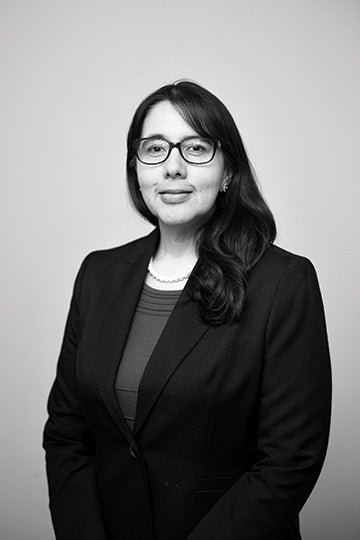A Tenacious Talent
Nanoengineer Karen Lozano’s achievements and impact extend far beyond the lab.

Spring 2024
By Sarah B. Jones
Born in Monterrey, Karen Lozano ’96, ’99 was the first Mexican woman to earn a doctorate in engineering from Rice — and that same grit, hard work, and amazing aptitude for engineering innovation has led her to the title of Julia Beecherl Endowed Professor of Mechanical Engineering at the University of Texas Rio Grande Valley and a storied career in nanofiber research.
Following graduation from the University of Monterrey in 1993, Lozano received a swift and decisive lesson in gender politics — engineering jobs in her hometown were almost entirely restricted to male applicants. Lozano, however, remained fiercely committed to her career and to financially supporting her family, so she doubled down on engineering, applied to graduate school at Rice, moved to Houston, and joined the lab of nanoengineer Enrique Barrera.
After earning two degrees at Rice, Lozano was offered a tenure-track position at the University of Texas-Pan American, now the University of Texas Rio Grande Valley. Colleagues warned her against a job with a teaching institution that did not prioritize research and where retention and graduation rates were low. But Lozano was undaunted. In her first semester there, she applied for and won the prestigious CAREER award presented by the National Science Foundation, setting into motion a successful research program and introducing hands-on opportunities for hundreds of students at her university.
“I never ask for the easy way out,” Lozano says emphatically. “I ask instead, where can I make the best use of my talents? Even if it is hard, that’s what I will do.”
The defining discovery of her career emerged from a challenge posed by a visiting researcher from MD Anderson, who asked Lozano if she could create nanofibers out of the polymer composites in her lab. At the time, nanofibers were most commonly produced through electrospinning, which required sending a charge through a syringe and needle. Lozano knew this was slow, inefficient work. Famously, Lozano’s eureka moment happened at an Elmo and Friends concert, where she had taken her two young sons. Waiting in the concession line, she was struck by the thousands of fibers in the cotton candy — fibers that she realized had been spun using centrifugal force.
I never ask for the easy way out. I ask instead, where can I make the best use of my talents? Even if it is hard, that’s what I will do.
That lightbulb moment led Lozano to pioneer “forcespinning,” a process that uses centrifugal force to produce hundreds of meters of nanofibers per second. She co-founded the company FibeRio, and manufacturers producing everything from clothing to hygiene and health care products lined up for the chance to buy her nanofibers. In 2016, she sold FibeRio to Parker Hannifin and is now directing her research toward commercializing small, portable units that produce nanofibers for wound care. Designed for a doctor’s office or even home use, the technology produces a spray of nanofibers that conform to the geometry of the wound, building a scaffolding that facilitates healing from the inside out.
In 2023, Lozano was elected to the prestigious National Academy of Engineering for “contributions to nanofiber research and commercialization and the mentoring of undergraduate students from underserved populations.”
Lozano’s brilliant scientific mind and efforts to build a first-rate research program at her university cannot be overstated. She boasts a 100% retention and graduation rate for students who work in her lab. An impressive 50 students have gone on to earn doctorates from Rice, Georgia Tech, Texas A&M, Boston University and more.
Lozano’s ambition, intellect and talent would certainly have driven her success at any university, but she chose to invest in her own community. “You see that your work and your sleepless nights have made a transformation,” she says. “You see first-generation students graduate, find a job, help their families — their nieces, nephews and siblings — pursue an education. You see that your work has social impact beyond the scientific article or research study. There is great satisfaction in that.”
